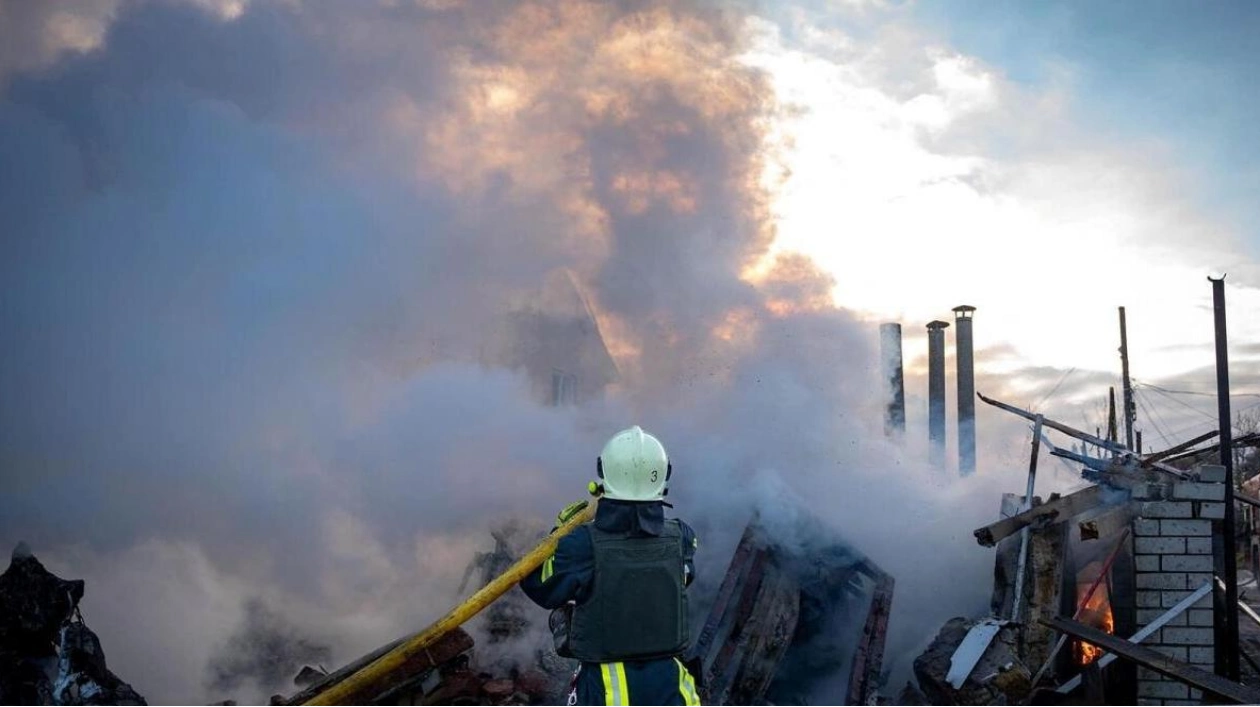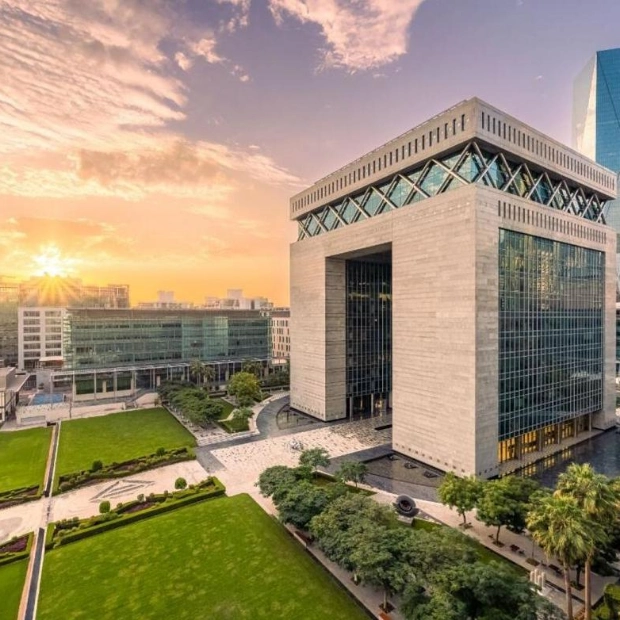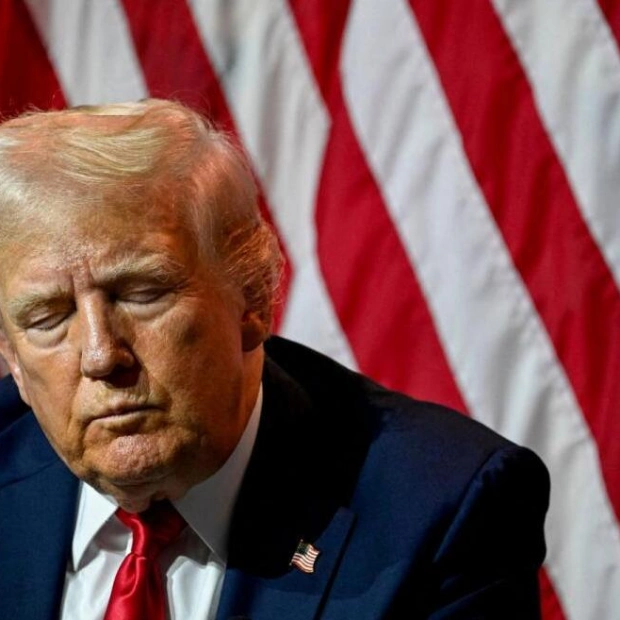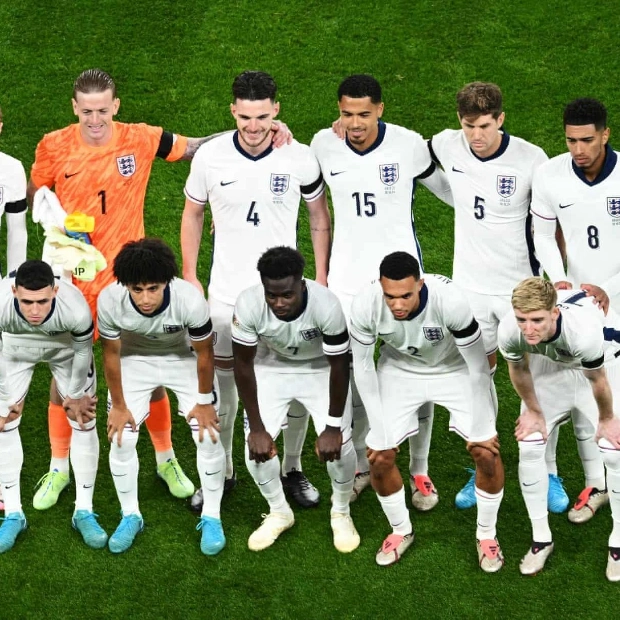A firefighter is seen working in a residential area damaged by a Russian missile strike in Odesa, Ukraine, on Sunday. REUTERS
A fragment of a downed Russian hypersonic missile Zircon is loaded onto a special truck after it struck a five-storey residential building in Kyiv during a "massive" aerial barrage on Sunday. AFP
Russia launched a "massive" aerial barrage on Ukraine on Sunday, according to Ukrainian officials, resulting in at least eight deaths and causing power outages amid concerns about an already precarious winter. Hundreds of missiles and drones were launched across Kyiv's skies as Russia's invasion surpassed its one thousandth day, leaving over 20 people injured and further damaging the country's already strained energy grid. The strikes occurred as Ukraine faced setbacks against Russian forces, and the support of its main backer, the United States, was thrown into doubt following the reelection of Donald Trump.
Ukraine's energy operator DTEK announced emergency power cuts in the Kyiv region and two eastern regions. Earlier, Ukraine's Energy Minister German Galushchenko stated on Telegram that Russian forces were "attacking electricity generation and transmission facilities throughout Ukraine". AFP journalists reported explosions in the early morning in Kyiv and near Sloviansk in the Donetsk region, with Kyiv's Foreign Minister Andriy Sybiga describing the strikes as "one of the largest air attacks" of the conflict.
Russia's defence ministry claimed it had hit all its targets in a massive attack on "essential energy infrastructure supporting the Ukrainian military-industrial complex". President Volodymyr Zelensky has said that Russia's relentless aerial bombardment has destroyed half of Ukraine's energy production capacity. Moscow fired 120 missiles and 90 drones at Ukraine, of which 140 were shot down by Kyiv's air defences, according to Zelensky on Sunday.
With the harsh Ukrainian winter approaching, the country is already experiencing significant energy shortages, while its outmanned and outgunned forces have been steadily losing ground to Kremlin troops for weeks. Kyiv has appealed to its Western allies for assistance in rebuilding its energy grid—a costly endeavor—and to supply its forces with more aerial defence weapons. However, many in Ukraine fear that Western aid will not be as readily available following Trump's return to the White House in January.
In addition to the Kyiv region, DTEK also announced power cuts in the Donetsk and Dnipropetrovsk regions in the east, where Russia's army has claimed the capture of dozens of villages in recent weeks. Power was also cut off in parts of the southern Black Sea port city of Odesa, according to its mayor, while officials warned that essential infrastructure was affected in almost all parts of the country, with the west and south particularly hard-hit. Although the extent of the damage is difficult to estimate at present, the grid operator stated that this was the eighth major attack on its power stations this year.
In total, the overnight Russian strikes left at least eight people dead and around 20 more wounded, according to Ukrainian officials. The toll included two employees of the state railway company Ukrzaliznytsia in the city of Nikopol, who were killed when a depot was hit, according to the Dnipropetrovsk region's governor Sergiy Lysak and the operator. Three more people were wounded in the bombing. Odesa governor Oleg Kiper reported that strikes on the port city likewise killed two. A Russian drone strike killed two people and injured six others, including two children, in the southern Mykolaiv region, according to Ukraine's emergency services.
In the western Lviv region, relatively spared from the conflict, a cruise missile strike killed a 66-year-old woman and wounded two others, said military administration chief Makdym Kozytsky. Several people were also injured in separate attacks in Dnipro in the east, the central Poltava as well as the southern Zaporizhzhia, Odesa and Kherson regions. Russian missiles and drones even struck Transcarpathia, a rarely targeted western region far from the front line on the border with Poland and Hungary, without causing any casualties. This prompted neighboring Poland to scramble fighter jets and mobilise all available forces on Sunday in response.
Top diplomat Sybiga branded the barrage as Russia's "real response" to Western leaders who had sought to reach out to President Vladimir Putin. Kyiv was angered by German Chancellor Olaf Scholz initiating a call with Putin on Friday despite Ukraine's objections, in what was the Russian leader's first phone conversation with a major Western leader in nearly two years. Ukraine accused Scholz of an "attempt at appeasement" and said the call would not achieve anything other than minimise Putin's "isolation".
Having repeatedly promised to end the Ukraine war in a day, Trump's reelection has reignited debate over the prospect of a diplomatic solution to the conflict. After long dismissing the prospect of talks, Zelensky on Saturday said he wanted to bring an end to the war by "diplomatic means" next year. Yet Kyiv and the Kremlin remain at odds over the terms of any peace deal. Putin has said he will only accept talks with Ukraine if Kyiv surrenders Ukrainian territory that Moscow occupies. Zelensky has rejected Putin's conditions.
Source link: https://www.khaleejtimes.com






